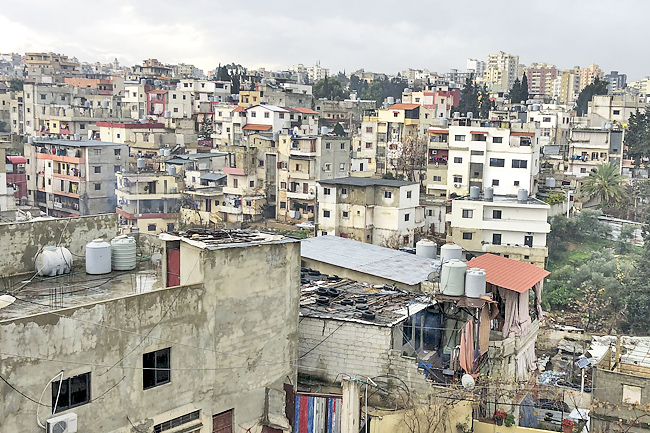WADI NAHLEH, LEBANON (AP) – Two weeks before he was supposed to get married, Bakr Seif told his mother he was going out to see his fiancee and would be back for lunch. When he did not show up by nighttime, his mother called the fiancee, who said he had not been to visit her.
That day, December 8, was the last time Seif’s mother saw him. Last week, he was among nine people killed in an Iraqi army airstrike targetting suspected militants in eastern Iraq. At least four of them were Lebanese, all from this small, impoverished village near the northern city of Tripoli.
As Lebanon slid deeper into economic misery over recent months, dozens of young men have disappeared from the country’s marginalised north and later surfaced in Iraq, where they are believed to have joined the Islamic State (IS) group. The migration has stoked fears of a new wave of radical recruitment, taking advantage of frustration and despair fuelled by the economic meltdown and sectarian tensions.
Many Lebanese have plummeted into poverty as the local currency has collapsed, the value of salaries and bank accounts has evaporated, and prices have soared. Even before the crisis, Tripoli was Lebanon’s poorest city – and things have only gotten worse with scores of young, seemingly unemployed men in the streets.
But it’s not just poverty driving some young men to join IS. Tripoli and its surrounding areas are also a centre for many of Lebanon’s Sunni Muslim community, who resent what they say is neglect from the government in Beirut.
Security forces have targeted youth in crackdowns over militancy, and activists have said for years that thousands have been detained without trial because of suspicions of militant links.
Seif’s mother believed her son was being detained by the Lebanese intelligence. But five or six days before he was killed, he called, the first she’d heard from him since his disappearance.
He wouldn’t say where he was, telling her only, “I have been wronged, I have been wronged,” without explanation, she said.

Seif had spent seven years in jail on suspicion of “acts of terrorism” and was released in June without trial. The family maintains his innocence and opened a grocery for him to work in, since no one else would employ him after his release.
“He was living in constant fear. He used to tell me, ‘I trust no one but my family,’” his mother said.
IS’s top leader, Abu Ibrahim al-Hashimi al-Qurayshi, was killed in a US raid on his safehouse in northwest Syria on Thursday.
Experts believe that while his elimination may cause some short-term disruption, the group can replace him and continue its campaign of violence in Iraq and Syria.
The numbers of Lebanese apparently joining IS is nowhere near the hundreds who went to neighbouring Syria to join rebels there, including ones linked to al-Qaida, at the height of that country’s civil war. Since that war waned several years ago, the flow of Lebanese to join dried up.
The migration to join IS in Iraq appears to be new. Lawyer Mohammed Sablouh, who heads the Centre for Prisoners Rights, said it is believed that between 70 to 100 young men disappeared from the Tripoli area in past months, though the exact number is not known.
They were from the poorest districts in and around Tripoli, and some may have been lured by the promise of jobs, not realising they were joining IS, he said. Others were afraid of being swept up in crackdowns.
“These men are being manipulated by dark forces led by those who benefit from the revival of Daesh and want to harm the image of Tripoli,” Sablouh said, using the Arabic acronym for IS. Besides the deaths in Sunday’s strike, at least two other Lebanese have been killed in Iraq since December.
Tripoli has been the scene of militant violence in the past – the most serious in 2014, when militants inspired by the IS group carried out attacks against Lebanon’s army.
Disappearances of young men began to rise in late August, not long after a former military intelligence member, Ahmad Murad, was shot and killed in Tripoli.
In the subsequent search, the military said it arrested an IS cell that included six militants involved in Murad’s killing. It appears the capture of the cell led other IS cells in the north to go on the run.



















































